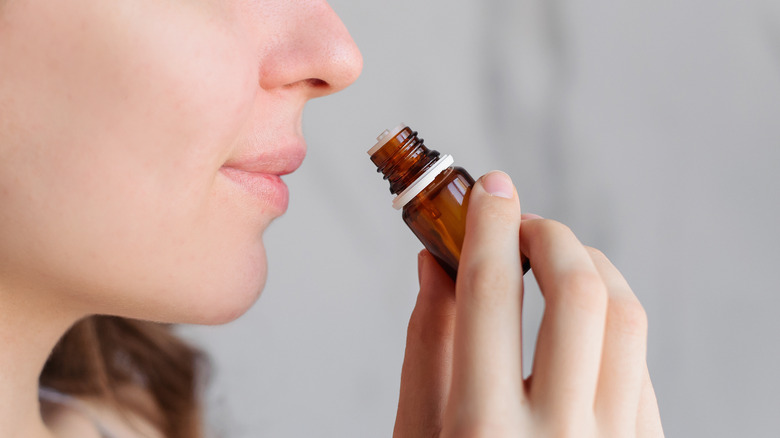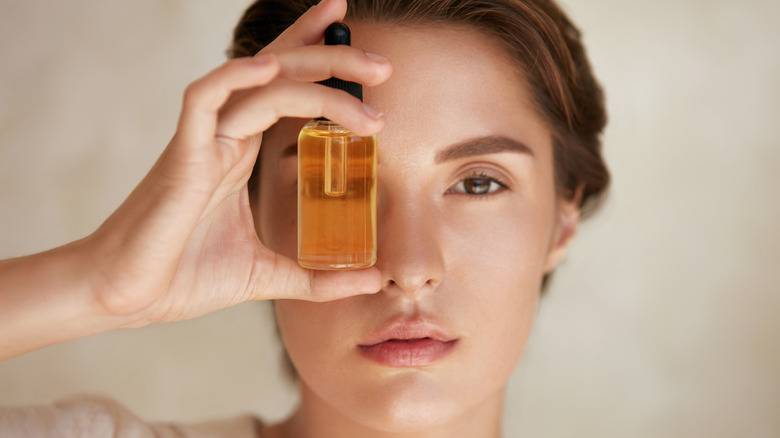Here's What Essential Oils Can And Can't Do For You
Essential oils are powerful plant extracts, but there's a lot of conflicting advice about how they work and how to use them. Essential oils can be used in a number of ways, including as part of aromatherapy wellness treatment or to help with anxiety, according to Healthline, and boast a wide range of benefits. Essential oils are different from fragrance oils — they're compounds that have been extracted from plants and are usually all natural. Usually, essential oils hold the "essence" of the plant, such as their scent and flavor.
Usually, essential oils are created through a distillation process using either steam or water, along with a specialist method, such as cold pressing. Once the aromatic essence has been extracted, the scent is mixed with a carrier oil which creates a ready-to-use product. How an essential oil is made impacts whether it's a true essential oil or not. An oil that has been created using a chemical process is not usually known as a true essential oil.
As per Allure, you might be wondering whether essential oils are actually good for your skin or whether they can cause irritation? You might want to know how aromatherapy works and whether it's a legit wellness treatment. You may also be wondering what the correct process is for diluting your favorite essential oil. Don't worry, we've got you covered.
How can essential oils be used and what are the benefits?
As per Healthline, essential oils can be used in a wide number of ways, with uses differing depending on the specific oil. For instance, peppermint oil can help to boost energy and aid digestion, sandalwood can calm nervousness and improve focus, lavender oil can aid sleep and reduce feelings of stress, and bergamot can help to boost skin health and reduce flare-ups of skin conditions like eczema. Each oil usually has different uses and benefits.
A common use of essential oil is for aromatherapy. As per Allure, Megan E. Voss, an assistant professor at the University of Minnesota Earl E. Bakken Center for Spirituality & Healing, explained, "Aromatherapy can be beneficial in the management of certain symptoms such as anxiety, pain, nausea, and insomnia." Essential oils can be used in a range of ways — they can be diffused, inhaled, used to clean, or they can be applied to the skin.
Another purpose of essential oils is in skincare — particularly oils like tea tree, rose, and lavender oil. However, if essential oils aren't used as directed, they can cause serious skin irritation or chemical burns, which is where dilution comes in. If you're going to safely use essential oils as a form of skincare, it's vital that the oil is properly diluted — the more it's diluted, the less chance of an adverse reaction.

